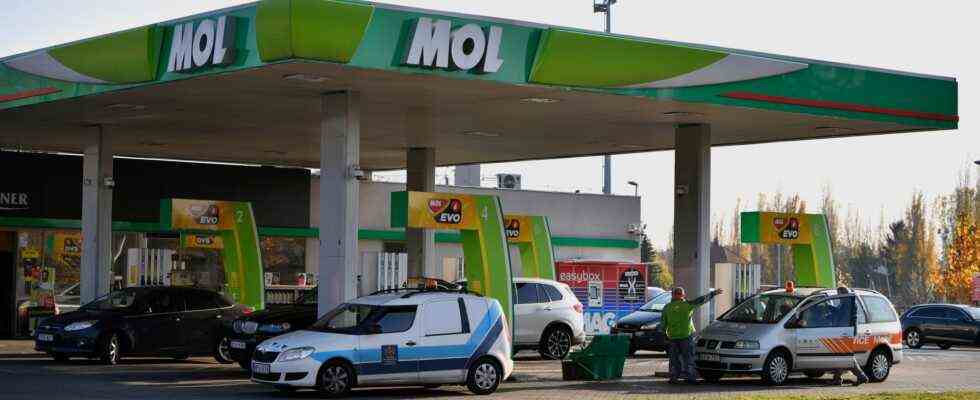Status: 11/26/2021 8:19 a.m.
In the fight against the consequences of expensive fuel, the Hungarian government set a maximum price without further ado. Motorists cheer. But petrol station owners fear for their existence.
Judit needs her car. The 50-year-old lives with her family in a suburb of Budapest. She drives the children to school every day, then on to work. She recently worried about the dramatic rise in gasoline prices: at the beginning of November, she paid more than 30,000 Hungarian forints (HUF) for a full tank, which is the equivalent of 81 euros. For comparison: In the summer it was an average of only 59 euros per tank. “I really had the feeling: This is going too far,” says Judit. “But now with these fixed prices everything is calculable, so I think that’s basically good.”
Petrol station tenants fear for their existence
Fixed prices at petrol stations have been in effect in Hungary since November 15th. Because the Hungarian government has set a maximum fuel price at filling stations: whether diesel or petrol – a liter may cost a maximum of 480 forints. That is the equivalent of 1.31 euros. The result: The display boards at petrol stations have been synchronized since then. 479.99 is written there now. All over. “I have the impression that we live in a socialist country,” says Gergely with a laugh. He is 30 years old and a commuter. He doesn’t want to complain, after all, he has to refuel at least once a week.
István doesn’t find any of this funny, just like Judit and Gergely, he doesn’t want to reveal his full name. István leases a gas station in a rather affluent area in Budapest and he’s mad. The fuel price brake is forcing petrol stations, in the worst case, to sell petrol to customers for less than they buy it themselves, says István. The companies are left with the loss. “We’ll somehow survive because we’re part of one of the big chains,” says Istvan. “But if the price brake lasts longer than three months, it will be difficult for us too.”
Prime Minister Victor Orban justifies the measure in a radio interview. He no longer wanted to stand idly by the rising oil prices. “The problem with fuels is that they not only make driving more expensive, but also all other prices,” said Orban. “If an emergency arises, like now, then – just like any doctor – you have to operate, so you have to intervene.”
Hungary’s Prime Minister Victor Orban justifies the fuel price brake as an emergency measure.
Image: AFP
Industry warns of series of gas station bankruptcies
Sharp criticism comes from the Hungarian mineral oil association, the Hungarian Petroleum Association. Its general secretary, Ottó Grád, fears that petrol stations will die out on a massive scale if the government does not quickly deviate from its tactics. There are 2,000 petrol stations in Hungary with a total of around 15,000 employees. “This is about the livelihood of these people,” says Grád. “Some of the smaller businesses are already considering closing.”
The Hungarian government has so far rejected the demand to cut the mineral oil tax in order to push the price of fuel down, as has the demand for compensation payments. The dealers would just have to cut their profit margin, comments the spokesman for the Hungarian State Chancellery.
The state fuel price brake will initially apply for three months. The Hungarian government is definitely aware that it could be difficult to backtrack if the global oil price continues to rise. Because when the opposition in the Hungarian parliament called for a fuel price brake back in October, Orban rejected it. Reason: This is a step that can hardly be reversed.

